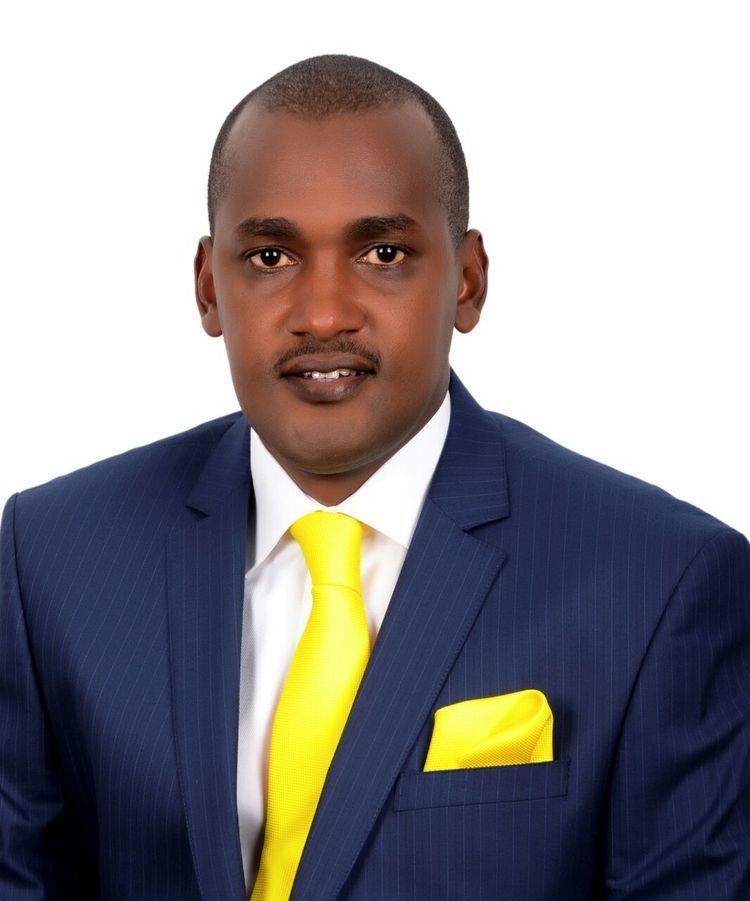The Office of the Cabinet Minister,
Ministry of Agriculture, Animal Industry and Fisheries
The Office of the Minister for Agriculture, Animal Industry and Fisheries is provided for in Article 111 of the Constitution of the Republic of Uganda which provides for the appointment of Cabinet Ministers by the President from amongst Members of Parliament or any other persons qualified to be elected as Members of Parliament.
The Cabinet Minister is accountable to the President of the Republic of Uganda and to Parliament for the exercise of two fundamental responsibilities:
(i) Individual performance related to his/her portfolio within the Government as Minister for Agriculture, Animal Industry and Fisheries
(ii) Collective performance of the Government
The holder of the Office of Minister for Agriculture, Animal Industry and Fisheries is by law:
(i) Sworn to carry out the powers, duties and functions of his/her portfolio
(ii) Responsible for the policies, programs and administration of the Ministry
(iii) The source of policy and program initiatives
(iv) Vested with Departmental powers, duties and functions through various Acts of Parliament
(v) Individually responsible to Parliament for his/her actions, the policies and practices of the Ministry including the actions of all officials under his/her management and direction and the policies and practices of any non-departmental bodies such as Agencies, Boards and Commissions within the Minister’s portfolio.

Hon. Frank Tumwebaze
Minister for Agriculture, Animal Industry and Fisheries
The Office of the Minister for Agriculture, Animal Industry and Fisheries is provided for in Article 111 of the Constitution of the Republic of Uganda which provides for the appointment of Cabinet Ministers by the President from amongst Members of Parliament or any other persons qualified to be elected as Members of Parliament.
The Cabinet Minister is accountable to the President of the Republic of Uganda and to Parliament for the exercise of two fundamental responsibilities:
(i) Individual performance related to his/her portfolio within the Government as Minister for Agriculture, Animal Industry and Fisheries
(ii) Collective performance of the Government
The holder of the Office of Minister for Agriculture, Animal Industry and Fisheries is by law:
(i) Sworn to carry out the powers, duties and functions of his/her portfolio
(ii) Responsible for the policies, programs and administration of the Ministry
(iii) The source of policy and program initiatives
(iv) Vested with Departmental powers, duties and functions through various Acts of Parliament
(v) Individually responsible to Parliament for his/her actions, the policies and practices of the Ministry including the actions of all officials under his/her management and direction and the policies and practices of any non-departmental bodies such as Agencies, Boards and Commissions within the Minister’s portfolio.
The Minister is expected to participate fully in Cabinet decision making and appropriate Cabinet Committees.
The Minister for Agriculture, Animal Industry and Fisheries is Hon. Frank Tumwebaze who is the Member of Parliament for Kibale County .
He was appointed to that position by the President of the Republic of Uganda on the 8th of June 2021.
Department of Aquaculture Management and Development
Objective
To support sustainable, market-oriented fish production and value addition; for improved food security and household income.
key functions and outputs
Key Functions
- Formulate, review, and implement policies, legislation, standards, plans and strategies on fish production and value addition
- Provide guidance on the transfer of improved and appropriate fish production technologies to service providers, processors, traders and consumers
- Establish and operationalize collaborative frameworks with national, regional and international fisheries research institutions and organizations to ensure sustainable development of the sub sector
- Provide quality assurance on advisory services relating to fish production
- Build capacity of service providers on fish production
- Provide guidance and promote the use of improved fish fry and fisheries stocking materials and sustainable natural resources management
- Conduct fisheries surveillance (fish aquaculture) in the country for the development of the fisheries industry.
Key Outputs
- Policies, legislation, standards, plans and strategies on fish production and value addition formulated, reviewed, and implemented
- Transfer of improved and appropriate fish production technologies to service providers, processors, traders and consumers provided
- Collaborative frameworks with national, regional and international fisheries research institutions and organizations to ensure sustainable development of the sub sector established and operationalized
- Quality assurance on advisory services relating to fish production provided
- Capacity of service providers on fish production built
- Guidance on and promotion of the use of improved fish fry and fisheries stocking materials and sustainable natural resources management provided
- Fisheries surveillance (fish aquaculture) in the country for the development of the fisheries industry conducted.
Divisions in the department of Aquaculture Management and Development
The department is headed by a Commissioner and has the following two divisions each headed by an Assistant Commissioner: -
- Aquaculture Management division
- Aquaculture Development division
Aquaculture Management Division
Functions
- Formulate, review, and implement policies, legislation, standards, plans and strategies for seed and feed development
- Guide on the transfer of improved and appropriate seed and feed development technologies to service providers
- Establish and operationalize collaborative mechanisms with national, regional and international fisheries research, institutions and organizations for sustainable management of aquaculture
- Provide quality assurance on advisory services on seed and feed development
- Build capacity of service providers on seed and feed development
- Provide and support sustainable production of cultured fish species and fisheries stocking materials
Aquaculture Development Division
Functions
Formulate, review, and implement policies, legislation, standards, strategies and plans on land and water culture systems
- Guide on the transfer of improved and appropriate land and water culture systems technologies to service providers
- Establish and operationalize collaborative mechanisms with national, regional and international fisheries research, institutions and organizations for sustainable development of land and water culture systems
- Provide quality assurance on advisory services for land and water culture systems
- Build capacity of service providers on land and water culture systems.
